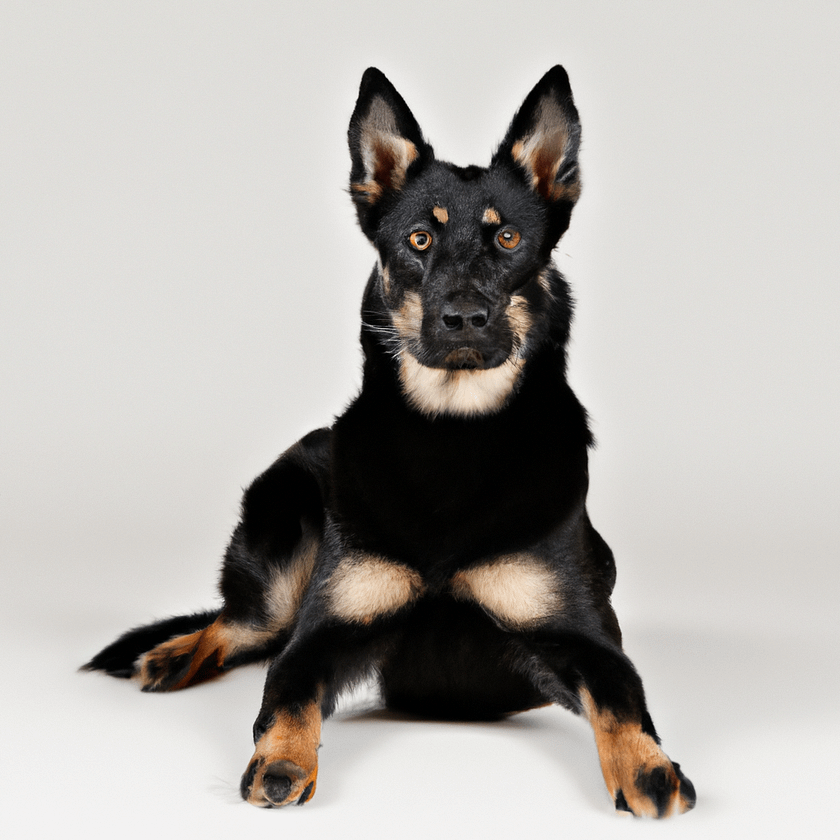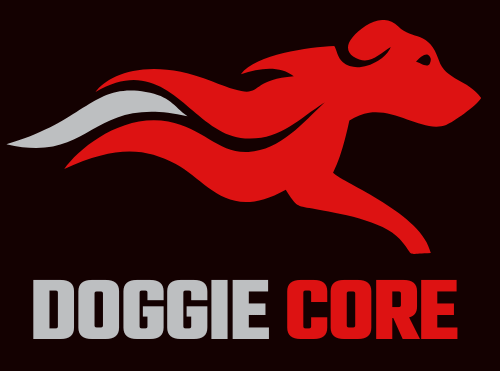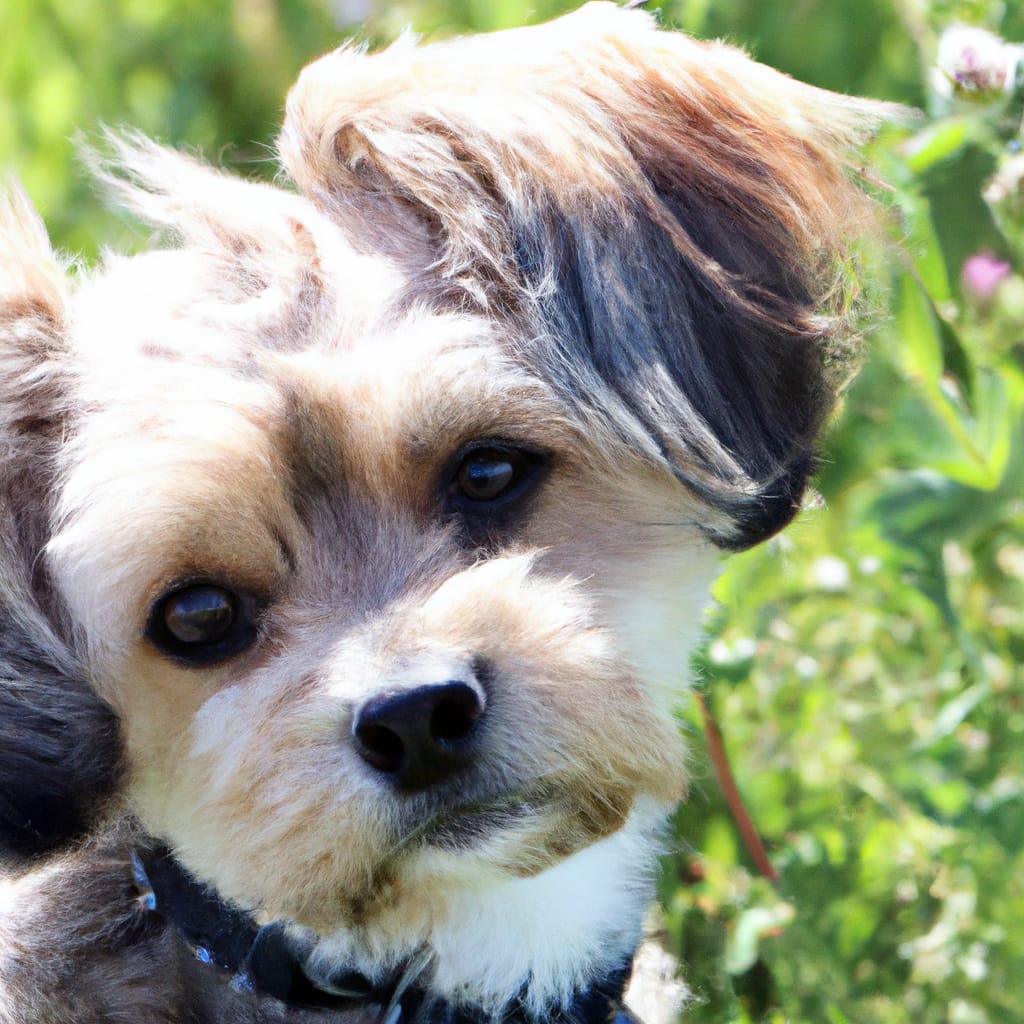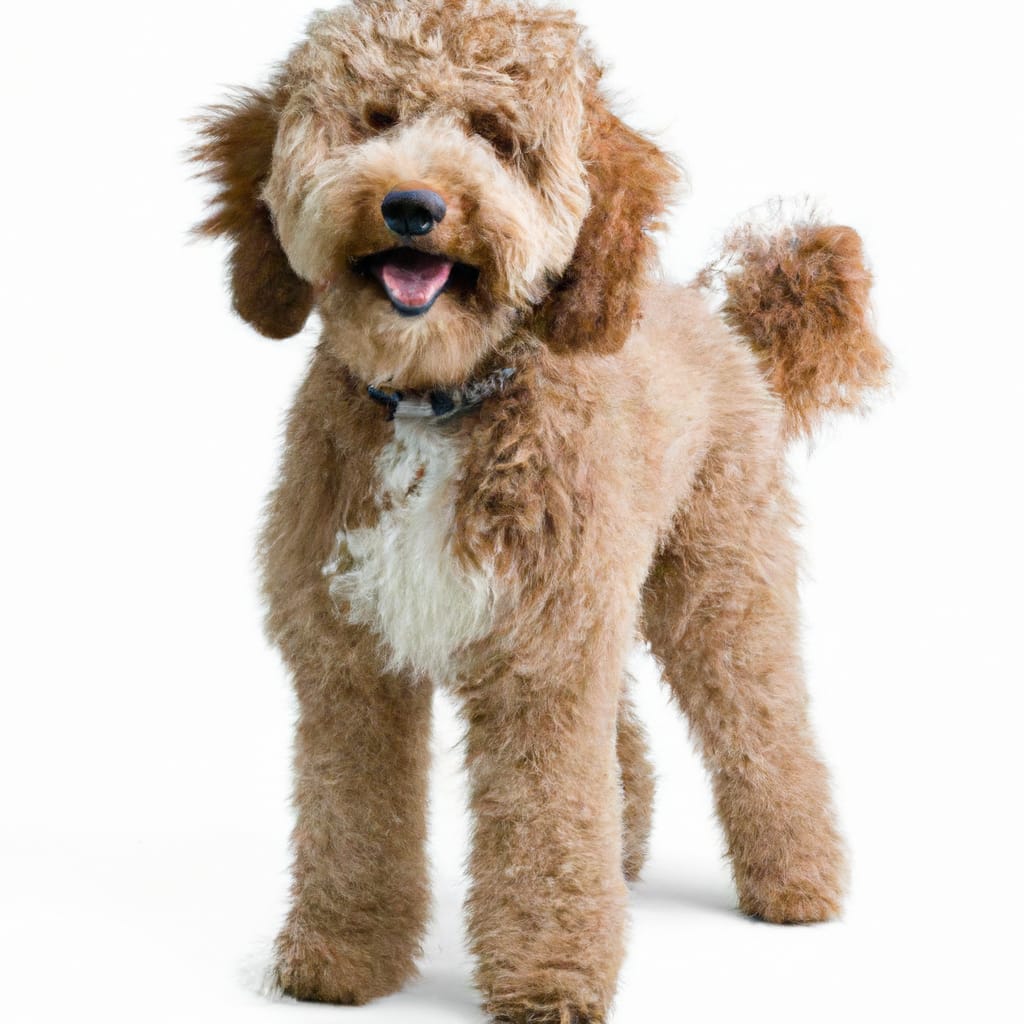Shepweiler Dog Breed Pros And Cons
Shepweiler dog breed information if you’re considering adding a new four-legged friend to your family, you may want to take a closer look at the Shepweiler dog breed. This unique mix between the German Shepherd and Rottweiler offers a compelling blend of traits that make them both loyal companions and formidable protectors. In this article, we’ll explore the pros and cons of owning a Shepweiler, from their intelligence and trainability to their potential health issues. Whether you’re a first-time dog owner or experienced with large breeds, understanding both sides of the coin will help you make an informed decision about welcoming a Shepweiler into your home.
Personality and Temperament
Loyal and Protective
The Shepweiler is known for its loyalty and protectiveness towards its family. This breed is often highly devoted to its owners and will go to great lengths to keep them safe. With their strong guarding instincts, Shepweilers make excellent watchdogs and will alert you to any potential threats.
Intelligent and Trainable
The Shepweiler is a highly intelligent breed and is known for its trainability. They are quick learners and can easily pick up commands and tasks. This breed thrives on mental stimulation and enjoys engaging in activities that challenge their intelligence. Whether it’s learning new tricks or participating in obedience training, the Shepweiler is always up for the challenge.
Energetic and Active
If you’re looking for a dog that can keep up with your active lifestyle, the Shepweiler is the perfect companion. This breed has high energy levels and loves to be constantly on the go. Regular exercise and activity are a must for this breed to keep them happy and healthy. Whether it’s long walks, runs, or even agility training, the Shepweiler will gladly join in on the fun.
Possibility of Aggression
While the Shepweiler is generally a well-tempered breed, it is important to note the potential for aggression. This breed can be wary of strangers and may exhibit protective behavior if they feel their family is being threatened. Early socialization and proper training are essential to help prevent any aggression issues. It is also important for owners to provide clear leadership and establish boundaries to ensure a well-behaved and balanced Shepweiler.
Potential for Separation Anxiety
The Shepweiler is a breed that thrives on human companionship and can suffer from separation anxiety if left alone for extended periods. They prefer to be in the company of their family and do not do well with long hours of solitude. If you have a busy lifestyle or work long hours, it is important to consider whether you can provide the necessary attention and companionship that this breed requires.
Physical Characteristics
Size and Appearance
The Shepweiler is a large and muscular breed known for its impressive stature. They typically stand between 22 to 27 inches at the shoulder and weigh between 70 to 100 pounds. With their strong build and athletic physique, Shepweilers have a commanding presence.
Coat and Grooming Needs
The Shepweiler has a dense double coat that provides them with protection in various weather conditions. Their coat is typically short to medium in length and can come in a variety of color combinations, including black, tan, and brown. Regular brushing is recommended to keep their coat healthy and to minimize shedding. Additionally, occasional baths and routine grooming, such as trimming their nails and cleaning their ears, are necessary to maintain their overall hygiene.
Exercise and Activity Requirements
As a high-energy breed, the Shepweiler requires a significant amount of exercise and activity on a daily basis. They thrive in homes where they have ample opportunities to engage in physical activities. Long walks, runs, and play sessions in a secure and spacious area are essential for their well-being. Providing them with mental stimulation through puzzle toys or obedience training will also help channel their energy in a positive way.
Common Health Issues
Like all dog breeds, the Shepweiler is prone to certain health issues. While they are generally healthy dogs, there are a few conditions that potential owners should be aware of. Some common health issues that affect the Shepweiler include hip dysplasia, bloat, and certain genetic conditions. Regular check-ups with a veterinarian and maintaining a healthy lifestyle can help minimize the risk of these health concerns.
Average Lifespan
The average lifespan of a Shepweiler is typically around 10 to 12 years. However, with proper care, good nutrition, and regular exercise, some Shepweilers have been known to live even longer.

Family Compatibility
Suitability for Families
The Shepweiler can make an excellent addition to a family. They are generally great with children and are known for their protective nature. However, due to their size and energy levels, it is important to supervise interactions between the Shepweiler and young children to prevent any accidental injuries.
Interaction with Children
When properly socialized and raised with children, the Shepweiler can form strong bonds and become loyal protectors. However, it is crucial to teach children how to interact with the Shepweiler appropriately and respect their boundaries. Teaching kids to approach dogs gently and without invading their personal space will help ensure a harmonious relationship.
Compatibility with Other Pets
The Shepweiler can get along well with other pets if they are properly introduced and socialized from a young age. As a breed with a strong prey drive, it is important to supervise their interactions with smaller animals such as cats or small dogs. Early socialization and positive experiences with other animals can help prevent any potential conflicts in the future.
Need for Socialization
Socialization is crucial for the Shepweiler to ensure they grow up to be well-rounded and well-behaved dogs. Exposing them to different environments, people, animals, and situations from a young age will help them develop into confident and friendly dogs. Enrolling them in puppy socialization classes or engaging in regular visits to dog parks are great ways to ensure they get the socialization they need.
Being a Watchdog
With their protective instincts, the Shepweiler excels at being a watchdog. They are always alert and will quickly alert their owners to any potential threats or intruders. Their intimidating appearance alone can often deter unwanted visitors. However, it is important to remember that proper training and socialization are necessary to ensure that their guarding instincts are directed appropriately and do not lead to aggression towards innocent individuals.
Training and Obedience
Trainability and Intelligence
The Shepweiler is highly trainable and intelligent, making them a joy to train. They are eager to please their owners and excel in obedience training. With their sharp minds and quick learning abilities, the Shepweiler can easily grasp commands and tasks, making them suitable for various dog sports and activities.
Need for Consistency and Leadership
Consistency and strong leadership are key when training a Shepweiler. This breed thrives in a structured and consistent environment where rules and boundaries are clearly communicated. Establishing yourself as a calm and confident leader will help ensure that the Shepweiler respects your authority and follows your commands.
Potential Challenges and Stubbornness
While the Shepweiler is generally a trainable breed, they can sometimes exhibit stubbornness and independence. It is important to stay patient, persistent, and use positive reinforcement techniques during training. This breed responds best to praise, rewards, and treats, rather than harsh punishment or forceful training methods.
Importance of Early Socialization
Early socialization is crucial to prevent any potential behavioral issues in the Shepweiler. Socializing them with different people, animals, and environments at a young age will help them become confident and well-adjusted adult dogs. It is important to expose them to new experiences in a positive and controlled manner to ensure they develop into well-rounded companions.
Obedience Training
Obedience training is essential for the Shepweiler to ensure they are well-behaved members of your household and community. Teaching them basic commands such as sit, stay, come, and heel will not only make your life easier but also keep them safe in potentially dangerous situations. Enrolling them in obedience classes or working with a professional trainer can be beneficial for both you and your Shepweiler.

Activity and Exercise Needs
High Energy Levels
The Shepweiler is a breed with high energy levels and requires plenty of exercise to prevent boredom and restlessness. They are not well-suited for sedentary lifestyles and thrive in homes where their exercise needs are met.
Need for Mental Stimulation
In addition to physical exercise, the Shepweiler also requires mental stimulation to keep their minds sharp and engaged. Engaging them in activities that challenge their intelligence, such as puzzle toys or obedience training, will help prevent boredom and destructive behaviors.
Exercise Requirements
The Shepweiler should be provided with at least an hour of vigorous exercise every day. This can include long walks, runs, hikes, or engaging in dog sports such as agility or obedience trials. They also enjoy interactive games like fetch or hide-and-seek, which provide both physical and mental stimulation.
Suitability for Apartment Living
Due to their large size and high energy levels, the Shepweiler is generally not recommended for apartment living. They require plenty of space to roam and play, and a lack of exercise can lead to behavioral problems. However, if living in an apartment, it is possible to meet their exercise needs by providing regular outdoor activities and mental stimulation.
Potential Destructive Behavior
If the Shepweiler does not receive adequate exercise and mental stimulation, they may exhibit destructive behaviors. This can include chewing on furniture, excessive barking, or digging. Providing them with plenty of exercise, toys, and mental challenges will help prevent these unwanted behaviors.
Grooming and Maintenance
Coat Types and Shedding
The Shepweiler has a dense double coat that helps protect them from varying weather conditions. They have a medium-length coat that sheds moderately throughout the year. Regular grooming helps minimize shedding and keeps their coat healthy.
Brushing and Bathing Needs
Regular brushing is recommended to keep the Shepweiler’s coat in good condition and to remove loose hair. Brushing at least once or twice a week will help prevent matting and keep their coat shiny. Bathing should be done as needed, typically every few months or when they get dirty.
Special Attention to Ears and Teeth
The Shepweiler’s ears should be regularly checked and cleaned to prevent any buildup of wax or debris, which can lead to ear infections. Brushing their teeth regularly is also important to maintain their oral health and prevent dental issues. Weekly tooth brushing with a canine toothpaste is recommended.
Preventative Care
In addition to regular grooming, preventative care is essential for the Shepweiler’s overall health. This includes monthly flea and tick prevention, regular deworming, and maintaining up-to-date vaccinations. Regularly checking their skin for any abnormalities or signs of irritation is also important.
Regular Veterinary Check-ups
Routine healthcare is crucial for the Shepweiler to ensure their overall well-being. Regular veterinary check-ups, typically once or twice a year, will help catch any potential health issues early and ensure that they are up to date on vaccinations. It is important to establish a relationship with a trusted veterinarian who can provide guidance and care for your Shepweiler.
Health and Longevity
Potential Genetic Health Issues
While the Shepweiler is generally a healthy breed, there are a few genetic health issues that potential owners should be aware of. Some of the common health issues that may affect Shepweilers include hip dysplasia, bloat, canine cancer, and certain genetic conditions. Regular veterinary check-ups, a healthy diet, and appropriate exercise can help minimize the risk of these health concerns.
Hip Dysplasia and Joint Problems
Hip dysplasia, a condition where the hip joint does not develop properly, can occur in the Shepweiler. This can lead to pain, lameness, and mobility issues. Providing a balanced diet, maintaining a healthy weight, and avoiding excessive exercise at a young age can help reduce the risk of hip dysplasia and other joint problems.
Maintaining a Healthy Weight
Maintaining a healthy weight is important for the Shepweiler to prevent obesity-related health issues. Obesity can put strain on their joints and increase the risk of various other health problems. Feeding them a balanced diet, providing regular exercise, and monitoring their food intake will help ensure they maintain a healthy weight.
Common Medical Expenses
Like all dogs, the Shepweiler may require veterinary care throughout their lives, including routine check-ups, vaccinations, and preventive treatments. The cost of medical expenses can vary depending on the region and the individual dog’s needs. It is important for potential owners to budget for these expenses and consider pet insurance to help cover unexpected medical costs.
Average Lifespan
The average lifespan of a Shepweiler is typically around 10 to 12 years. However, with proper care, good nutrition, regular exercise, and regular veterinary check-ups, some Shepweilers have been known to live even longer.
Costs and Expenses
Initial Purchase Price
The initial purchase price of a Shepweiler can vary depending on factors such as the breeder, location, and the dog’s lineage. It is important to research and choose a reputable breeder who prioritizes the health and well-being of their dogs. The average price for a Shepweiler puppy can range from $500 to $1500.
Food and Feeding Expenses
Feeding a Shepweiler a high-quality, balanced diet is essential for their overall health and well-being. The amount of food they require will depend on factors such as their age, activity level, and metabolism. On average, the monthly cost of feeding a Shepweiler can range from $50 to $100, depending on the brand and type of food chosen.
Veterinary Care Costs
Routine veterinary care, including vaccinations, check-ups, and preventive treatments, is an ongoing expense for Shepweiler owners. The cost of veterinary care can vary depending on the region and the individual dog’s needs. It is important to budget for these expenses and consider pet insurance to help cover unexpected medical costs.
Grooming Expenses
Grooming expenses for the Shepweiler are relatively low. Regular grooming, including brushing and occasional bathing, can typically be done at home. However, occasional professional grooming sessions may be necessary, which can cost around $50 to $100 per session, depending on the groomer and the dog’s size.
Training and Socialization Expenses
Training and socialization are important investments in the well-being and behavior of a Shepweiler. The cost of training classes can vary depending on the location and the specific training program chosen. On average, group obedience classes can range from $100 to $300, while private training sessions may cost upwards of $100 per hour.
Potential Legal and Insurance Considerations
Breed-Specific Legislation
It is important to be aware of any breed-specific legislation or regulations in your area that may affect owning a Shepweiler. Some regions have restrictions or bans on certain breeds, including the Shepweiler, due to perceived aggression or breed stereotypes. Familiarize yourself with local laws and regulations to ensure compliance and avoid any potential legal issues.
Homeowners Insurance Restrictions
Before bringing a Shepweiler into your home, it is important to check with your homeowners or renters insurance provider to understand any breed restrictions or requirements. Some insurance companies may have breed-specific exclusions or higher premiums for certain breeds, including the Shepweiler. Finding an insurance provider that covers your chosen breed is essential to protect yourself and your dog.
Additional Liability and Coverage
Owning a Shepweiler comes with added responsibility and potential liability. This breed’s protective instincts and potential for aggression if not properly trained and socialized can lead to legal and financial repercussions. Consider obtaining additional liability coverage, such as an umbrella policy, to protect yourself in the event of any unforeseen incidents.
Finding Insurance Options
Finding insurance coverage for a Shepweiler can sometimes be challenging due to their breed’s perceived risk factors. However, there are insurance providers that specialize in coverage for breeds typically considered higher risk. Research different insurance options and obtain quotes from multiple providers to ensure you find the best coverage for your needs.
Responsible Dog Ownership
Owning a Shepweiler requires responsible dog ownership to ensure a safe and happy environment for both the dog and the community. This includes providing proper training, socialization, and care, as well as adhering to local regulations and laws. A responsible owner will prioritize their dog’s well-being, take necessary precautions to prevent any incidents, and develop a strong bond and relationship with their Shepweiler.
Choosing a Reputable Breeder
Researching Breeders
When choosing a Shepweiler puppy, it is crucial to research and find a reputable breeder. Look for breeders who prioritize the health and well-being of the dogs and are knowledgeable about the breed. Avoid purchasing from puppy mills or backyard breeders who prioritize profit over the welfare of the dogs.
Visiting the Breeding Facility
Before purchasing a Shepweiler puppy, visit the breeding facility in person. This allows you to assess the conditions and ensure that the dogs are kept in a clean and safe environment. Ask to meet the parents of the puppies to assess their temperament and health.
Health Testing and Certifications
Reputable breeders will conduct health tests on their breeding dogs to ensure that they are free from hereditary health issues. Ask the breeder for documentation of health testing and certifications, such as OFA (Orthopedic Foundation for Animals) certifications for hip and elbow dysplasia. This demonstrates that the breeder is committed to breeding healthy and genetically sound dogs.
Reputation and References
Research the breeder’s reputation by reading reviews, testimonials, and talking to previous puppy buyers. A reputable breeder will have positive feedback and references from satisfied puppy owners. Reach out to these references to learn about their experience with the breeder and the health and temperament of their Shepweiler.
Avoiding Puppy Mills and Backyard Breeders
Puppy mills and backyard breeders prioritize profit over the welfare of the dogs. Avoid purchasing a Shepweiler puppy from these sources, as they often do not provide proper care, socialization, or health testing for their dogs. By purchasing from a reputable breeder, you can have peace of mind knowing that you are supporting ethical breeding practices and bringing home a healthy and well-adjusted Shepweiler.













